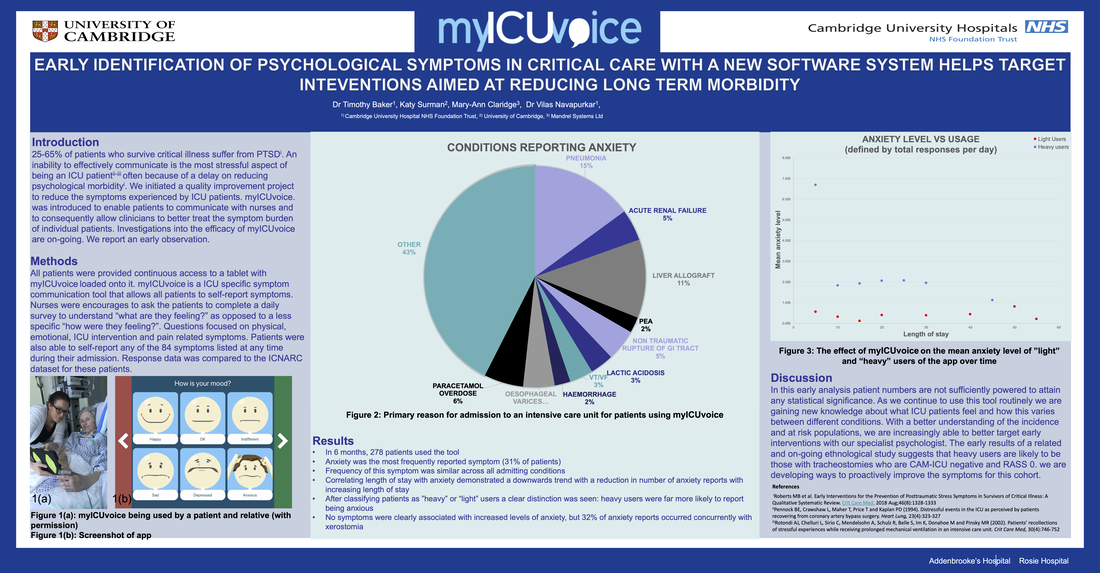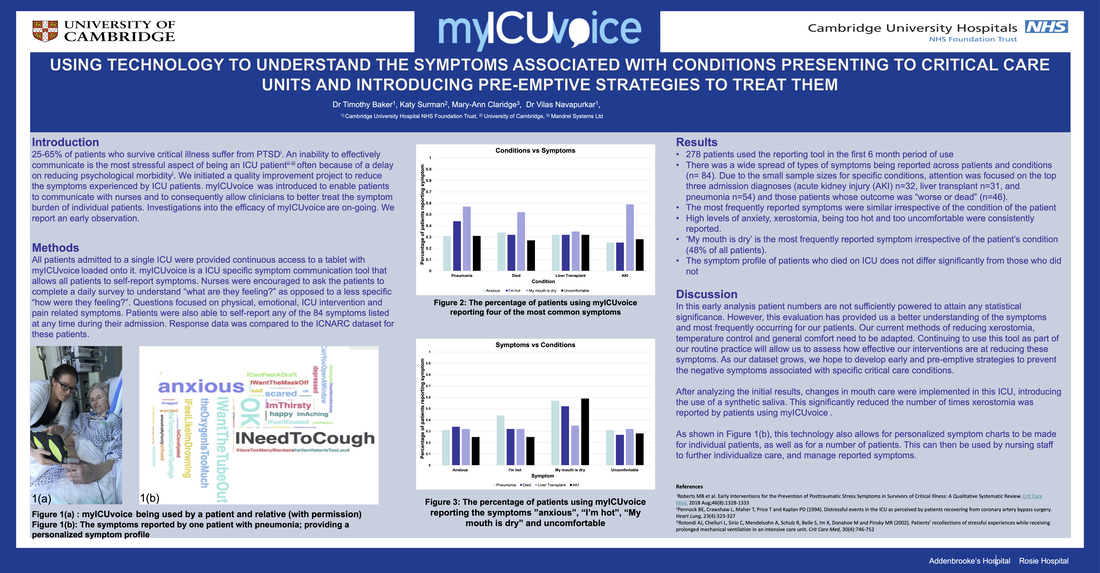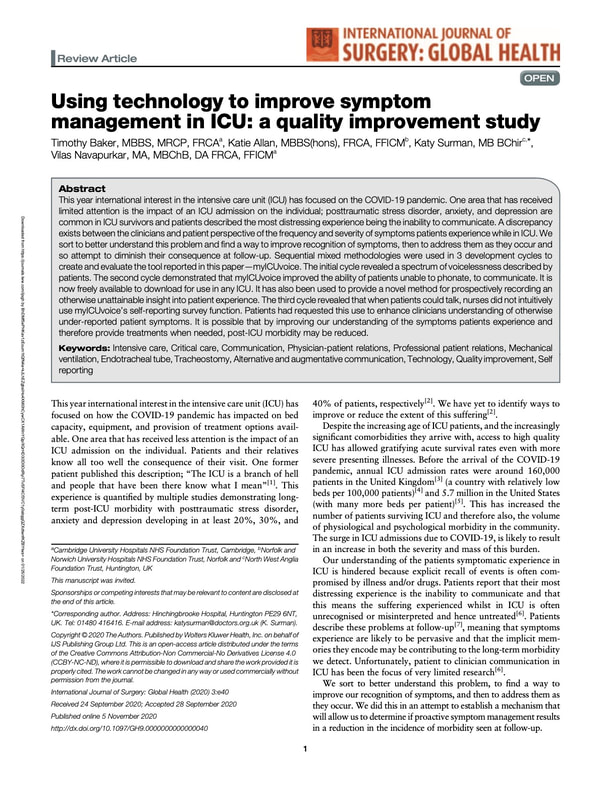For a number of years the team focused on improving the ability of patients in ICU to communicate. Working with patients, relatives, nurses, speech and language specialists, rehabilitation experts and doctors; with developed myICUvoice. We showed myICUvoice as a communication tool improved the ability of non-verbal patients to communicate and that this reduce their stress and fear. Like all communication tools, they are only useful if they are given to patients to use. The data system developed in Cambridge demonstrated that the tool wasn't used as often as nurses reported to us - we asked an anthropologist to find out why.
After developing a tool that we know works when given to patients, we redesigned the system to also help nurses and hospitals care for patients. We call this system SympTech...
Below are examples of the research that has been conducted to help design a system suitable for patients and for staff.
After developing a tool that we know works when given to patients, we redesigned the system to also help nurses and hospitals care for patients. We call this system SympTech...
Below are examples of the research that has been conducted to help design a system suitable for patients and for staff.




